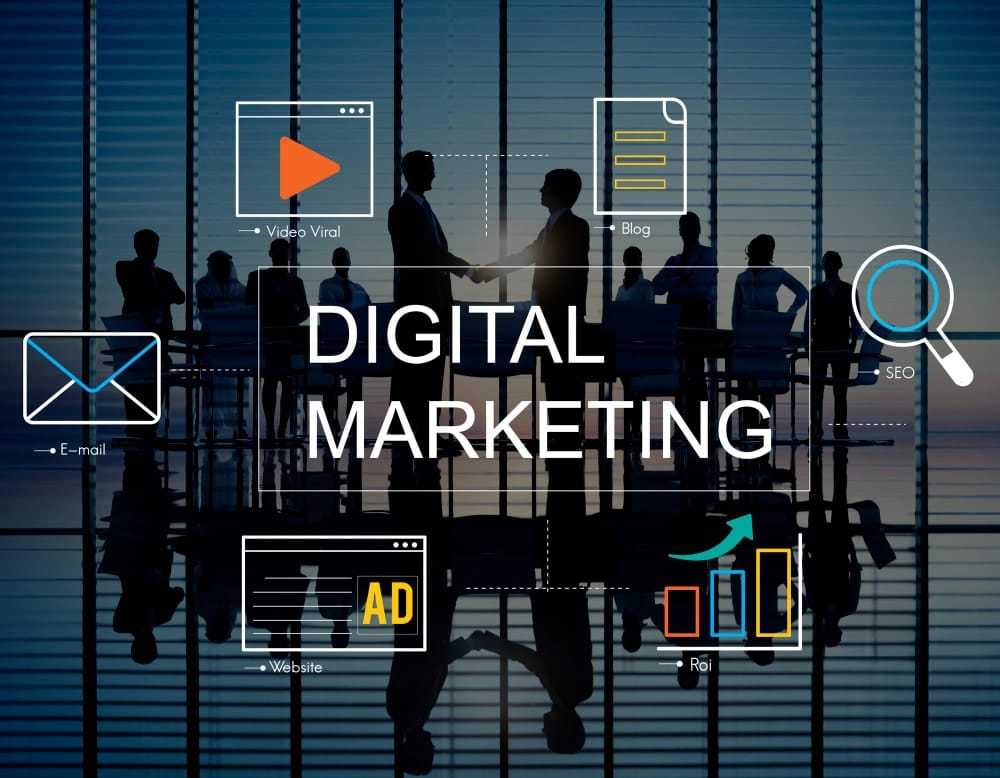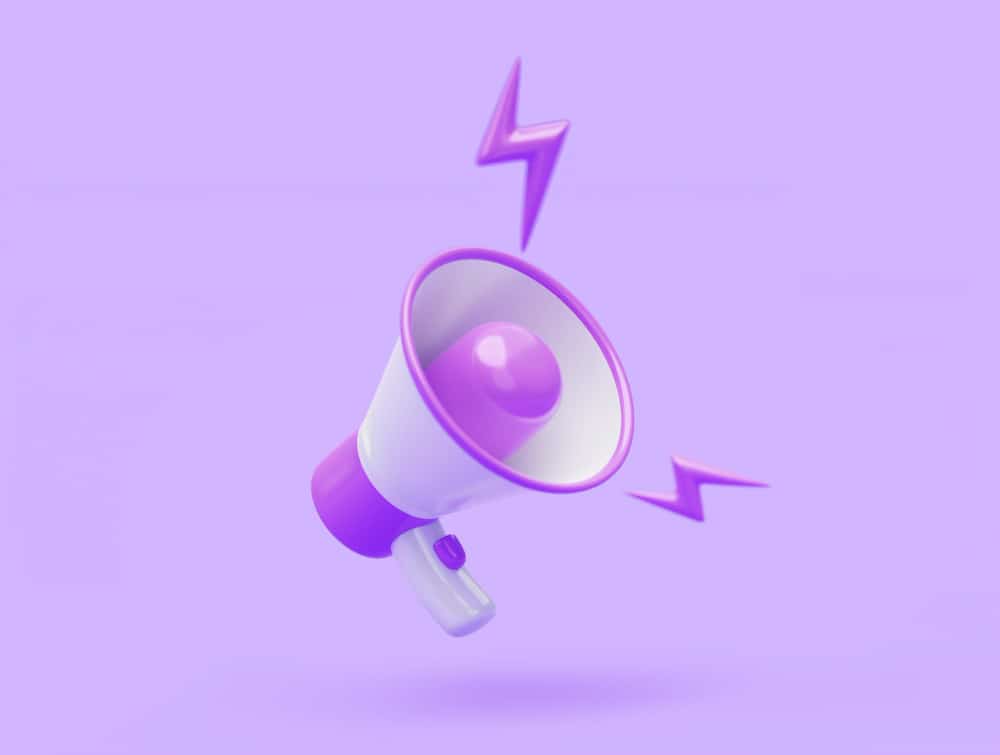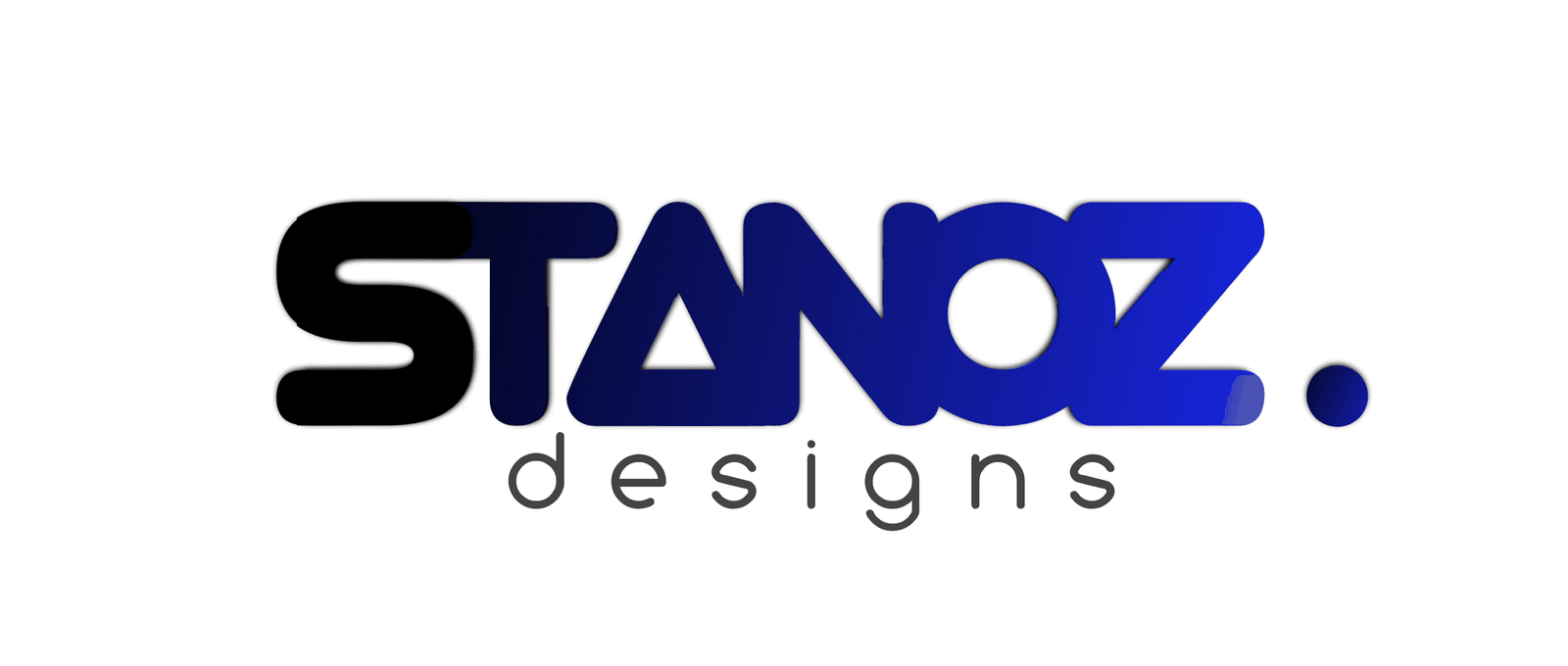Introduction
Artificial Intelligence (AI) is revolutionizing digital marketing, enabling businesses to create highly targeted campaigns, improve customer experiences, and maximize their return on investment (ROI). AI-powered tools help marketers automate processes, analyze vast amounts of data, and optimize campaigns in real time.
From personalized content recommendations to AI-driven chatbots, businesses that embrace AI in their marketing strategies gain a significant competitive edge. This article explores how AI is reshaping digital marketing and how brands can leverage it to drive smarter, more effective campaigns.
Table of Contents

1. Understanding AI in Digital Marketing
AI in digital marketing involves using machine learning, natural language processing (NLP), and predictive analytics to enhance marketing strategies. Some key AI technologies include:
- Machine Learning (ML): Analyzes data patterns to improve decision-making.
- Natural Language Processing (NLP): Enables AI to understand and generate human-like content.
- Computer Vision: Helps analyze and optimize visual content, such as images and videos.
- Predictive Analytics: Uses historical data to anticipate customer behavior and trends.
By integrating AI into digital marketing, businesses can automate repetitive tasks, improve targeting accuracy, and deliver more personalized experiences.

2. AI-Driven Personalization and Customer Insights
Consumers expect personalized experiences tailored to their interests. AI enables businesses to analyze user behavior, purchase history, and interactions to create highly targeted marketing campaigns.
AI-driven personalization allows businesses to:
- Segment audiences based on real-time data.
- Deliver personalized product recommendations.
- Optimize email marketing by predicting the best content for each recipient.
By leveraging AI-powered customer insights, brands can enhance engagement and increase conversion rates.
3. AI-Powered Content Creation and Optimization
Content is a crucial aspect of digital marketing, and AI is transforming the way brands create and optimize content. AI-powered tools can generate blog posts, social media captions, and even video scripts, helping marketers save time while maintaining high-quality output.
Additionally, AI enhances content optimization by analyzing keyword trends, recommending relevant topics, and improving SEO strategies. This ensures that businesses produce content that resonates with their audience and ranks well in search engines.

4. AI in Paid Advertising and PPC Campaigns
AI is making paid advertising more efficient by optimizing ad targeting, bid management, and creative testing. AI-driven platforms analyze user behavior and engagement metrics to refine ad strategies in real time.
With AI-powered advertising, businesses can:
- Automate audience segmentation for better targeting.
- Optimize bids to maximize ad spend efficiency.
- Conduct A/B testing to determine the most effective ad creatives.
AI ensures that marketing budgets are spent wisely, resulting in higher conversions and reduced cost-per-acquisition.
5. Chatbots and Conversational Marketing
AI chatbots have become essential for customer support and engagement. These intelligent virtual assistants provide instant responses, guide users through the buying process, and enhance customer satisfaction.
AI-driven chatbots can:
- Answer frequently asked questions.
- Qualify leads by collecting user information.
- Provide personalized recommendations based on customer preferences.
By integrating AI chatbots into their marketing strategies, businesses can improve response times and increase sales without relying heavily on human agents.

6. AI-Driven Email Marketing Automation
Email marketing remains a powerful digital marketing tool, and AI enhances its effectiveness by automating personalization, optimizing subject lines, and determining the best times to send emails.
AI-driven email marketing allows businesses to:
- Segment subscribers based on behavior and engagement.
- Generate compelling subject lines that increase open rates.
- Automate drip campaigns that nurture leads efficiently.
With AI, email marketing becomes more data-driven, ensuring higher engagement and better results.
7. Predictive Analytics and AI for Marketing Strategy
Predictive analytics enables businesses to make data-driven decisions by forecasting trends, customer preferences, and purchasing behaviors. AI-driven analytics tools help marketers refine their strategies by identifying patterns in consumer behavior.
Using predictive analytics, businesses can:
- Anticipate customer needs and create targeted campaigns.
- Adjust pricing strategies based on demand predictions.
- Improve marketing ROI by focusing on high-value customers.
By leveraging AI for predictive insights, brands can make smarter marketing decisions and stay ahead of competitors.
8. AI in Social Media Marketing
Social media is a dynamic and fast-paced marketing channel, and AI is playing a significant role in optimizing social media strategies. AI tools can track brand mentions, analyze sentiment, and recommend the best times to post content.
AI-powered social media marketing allows businesses to:
- Monitor audience sentiment and brand perception.
- Automate post scheduling for better engagement.
- Identify trending topics and hashtags for improved visibility.
By integrating AI into their social media strategies, brands can build stronger relationships with their audience and drive more meaningful interactions.
9. Ethical Considerations and Challenges of AI in Marketing
While AI offers significant benefits, it also presents ethical challenges. Businesses must ensure responsible AI usage by addressing:
- Data privacy concerns: AI relies on large datasets, making compliance with regulations like GDPR essential.
- Algorithmic bias: AI systems must be trained on diverse datasets to avoid biased decision-making.
- Human oversight: While AI enhances automation, human creativity and ethical considerations remain vital.
By implementing AI ethically, brands can maintain trust and transparency with their customers.
10. Future Trends in AI and Digital Marketing
The role of AI in digital marketing will continue to evolve. Some emerging trends include:
- AI-generated video content: AI tools will automate video creation and editing.
- Voice search optimization: AI will play a crucial role in adapting content for voice search queries.
- AI-driven influencer marketing: AI will help brands identify the most relevant influencers based on engagement data.
Businesses that embrace AI-driven marketing strategies will be better positioned for success in the rapidly changing digital landscape.
Conclusion
AI is no longer just a futuristic concept—it is transforming digital marketing today. From personalized marketing and predictive analytics to AI-powered content and advertising, businesses that leverage AI can create more efficient, data-driven campaigns that yield higher engagement and better ROI.
Embracing AI in marketing strategies allows brands to stay ahead of the competition, optimize customer interactions, and drive growth in an increasingly digital world.
Introducing Stanoz AI – The Future of AI-Driven Digital Marketing
As AI continues to redefine digital marketing, businesses need the right tools to harness its power effectively. Stanoz AI, being developed by Stanoz Designs Ltd, is a cutting-edge AI-powered digital marketing software designed to help businesses:
- Automate content creation and SEO optimization.
- Optimize paid advertising campaigns with AI-driven insights.
- Personalize customer interactions with AI chatbots and email automation.
- Analyze audience behavior and predict trends for better decision-making.
With Stanoz AI, businesses can unlock the full potential of AI in their marketing campaigns, streamline their processes, and achieve greater efficiency and profitability.
Ready to take your digital marketing to the next level? Discover Stanoz AI today and revolutionize the way you market your business!




